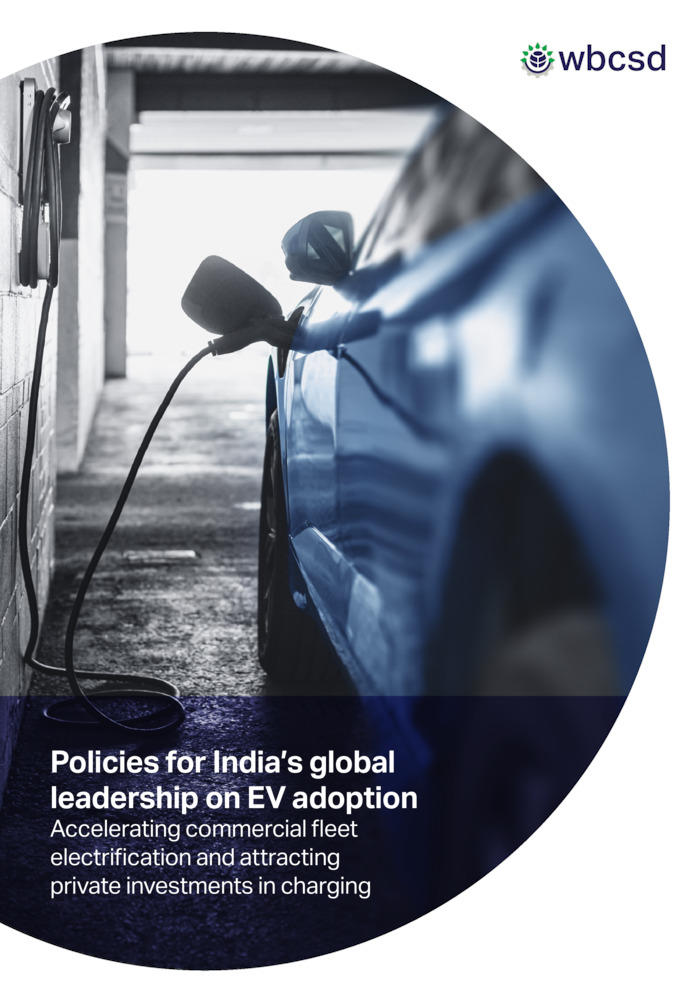
India wants to be a global leader in the manufacturing and adoption of electric vehicles (EVs). The country sees the energy transition in mobility as an important part of its emissions reduction, energy security and industrial strategies.
Building on the previous work of the REmobility coalition, WBCSD has developed this report to help accelerate India's transition to electric mobility and enhance the collaboration between policymakers and businesses. It presents a policy framework that reinforces the adoption of EVs across commercial fleets and increased investments in charging infrastructure. Developed in partnership with more than 30 businesses from India's EV value chain, the report outlines eight guiding pathways for policymakers and 18 actionable policy recommendations.
The report identifies the following guiding pathways for policy action on fleet electrification:
- Adopt an ambitious national EV target to trigger demand
- Transition commercial fleets first
- Liberalize the FAME-subsidy scheme
- Harmonize policies across government ministries and departments
- Offer non-financial incentives to EVs – create impact without spending from public exchequer
- Establish market rules – enhance ease and accessibility of regulations
- Enable access to clean energy to power clean mobility
- Ensure a level playing field while formulating policies
This report is part of WBCSD’s advocacy work on electric mobility in India. The goal is to build ambition among companies and government bodies to support India’s submission at COP26.

